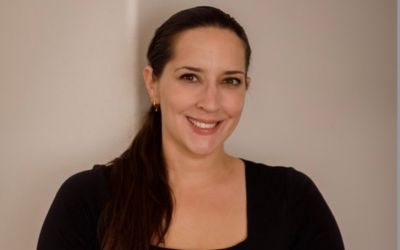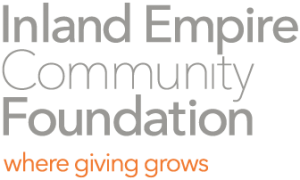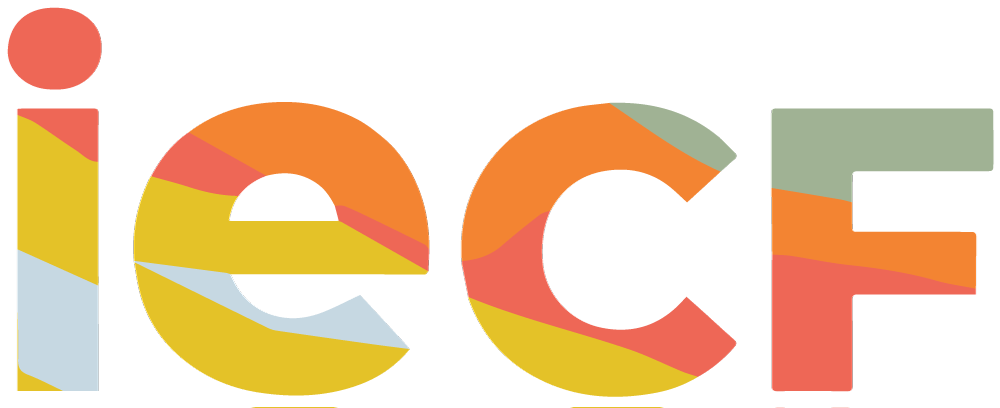 Coachella Valley journalist Melissa M. Daniels is writing her way to a vibrant future. The freelancer for Coachella Valley Independent is benefitting from a recent grant from Inland Empire Community Foundation’s (IECF) IE Journalism Innovation Hub+Fund, which supports local and regional journalism and media to build a pipeline of talent for the region.
Coachella Valley journalist Melissa M. Daniels is writing her way to a vibrant future. The freelancer for Coachella Valley Independent is benefitting from a recent grant from Inland Empire Community Foundation’s (IECF) IE Journalism Innovation Hub+Fund, which supports local and regional journalism and media to build a pipeline of talent for the region.
“With the grant, I’m excited to specifically focus on housing and ways that the Coachella Valley and Morongo Basin are addressing the housing crisis that we face,” Daniels said. “There’s a lack of affordable housing for families for single people, for the elderly, for people struggling with mental health and addiction.”
“I think we all see the difficult reality of what it means to be unhoused,” she added. “We’ve all seen the tents on the side of the road, and I don’t think that’s a community anyone wants to live in. It’s heartbreaking for the people who are experiencing that. I’m hoping to write some solution-journalism stories that look at what local governments, developers, and communities are doing to help address the affordable housing crisis.”
Several years ago, Daniels launched her column, Civic Solutions, a solutions-journalism-focused column, which takes a deep dive into issues, looking at them from a solutions lens. Investigating what organizations and people are doing to target those issues head-on is key.
“I then work backward to say, ‘OK, what worked here, what didn’t?” Daniels said. “Some of the different things that I’ve
looked at for civic solutions, including hunger, specifically child hunger, the free lunch program that California started, and how that’s been successful in local schools.”
Daniels also looked at issues surrounding voting access.
“During the November elections, I talked to some folks who were doing a lot to get the word out about people who were felons released from prison so that they could start voting again, and a lot of them didn’t know that they could. It was a democracy participation story.”
The IECF grant comes at a pivotal time in history when rampant disinformation and loss of local journalism outlets continues to draw major concerns. According to “The Community Foundation Local Media Guidebook,” researcher Dr. Penny Abernathy, a former professor at UNC, noted at least 85 local newsrooms in the U.S. have closed since the pandemic. Others have barely remained in operation, cutting staff, salaries, and work hours.
Additionally, about 1,800 newspapers have closed around the country since 2004.
To that end, Daniels has emerged as one of several if not rare agents of change in local media.
“I do it kind of for the love of the game,” she said. “It’s not my full-time job—I’m also a journalist for my full-time job, but not on local news.”
Her affinity for local news investigation is strong.
“We already have a lot of news stories and headlines with people identifying what’s wrong and there’s certainly a need for that, but I think the news landscape is really cluttered right now and people don’t know where to get news,” Daniels added. “I think there’s a lot of people who are sidelined by misinformation. There’s a lot of people who are more likely to get their news from a Facebook group than a legacy media outlet.”
That was one of the reasons Daniels started thinking about the kind of stories she really wanted to write, and she discovered that they revolved around her own community and the desert.
“I didn’t want to write stories that are only looking at problems,” she said. “I would rather look at ways that we’re trying to solve those problems to see what other people could learn from them.”
Meanwhile, the journalist remains busy with a focus on housing.
“I think there’s going to be some stories looking at competing interests,” she said. “The interests of developers versus interests of residents who are long-time members of the community. That’s a story we see all over the valley in different ways—people who want more housing built, people who don’t want more housing built, people who only want certain kinds of housing built, people who need other kinds of housing built.”
“I want to look at those conversations as they’re happening and say, “OK, what’s not being done for the people who are in this community already?” she added. “What is it that they need and how do we reach that?”
Learn more at melissamdaniels.com.
This article originally appeared in the Desert Sun, April 2025.
Stay up to date on all the good work we’re doing through the power of philanthropy. Sign up for our eNewsletter, Philanthropy Matters, today.


